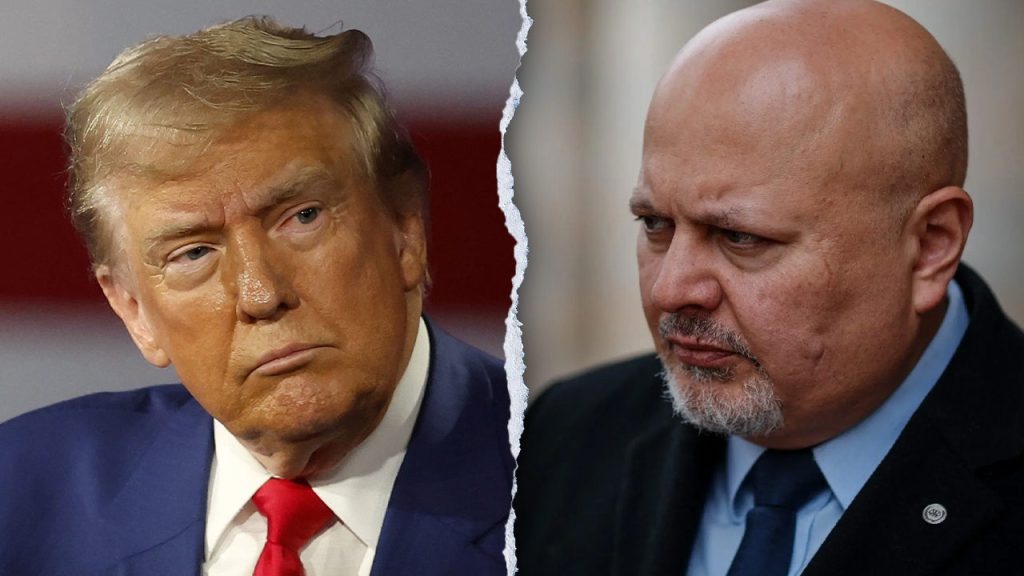The International Criminal Court (ICC) has found itself embroiled in controversy following Prosecutor Karim Khan’s application for arrest warrants against senior Taliban leaders, including supreme leader Haibatullah Akhundzada and chief justice Abdul Hakim Haqqani, for crimes against humanity. The timing of this move, coinciding with a pending US Senate vote on a bill to sanction the ICC over its pursuit of Israeli Prime Minister Benjamin Netanyahu and former Defense Minister Yoav Gallant, has raised suspicions of political maneuvering. Critics, such as Richard Goldberg of the Foundation for Defense of Democracies, argue that Khan’s actions are a desperate attempt to influence the Senate vote and deflect criticism away from the ICC’s targeting of US allies. This perception is further fueled by the ICC’s ongoing investigation into Americans, adding another layer of tension to the already strained relationship between the US and the international court. The proposed sanctions bill, known as the Illegitimate Court Counteraction Act, aims to protect US citizens and allies from ICC prosecution and curtail funding to the court.
The ICC’s pursuit of Taliban leaders for crimes against humanity, while seemingly justifiable, is juxtaposed against its controversial investigations into Israeli officials, creating a complex and politically charged narrative. This contrast has led to accusations of double standards and questions about the ICC’s motivations. Rebecca Hamilton, a former ICC lawyer, suggests that the timing of the Taliban warrants is strategically designed to influence the Senate vote and protect the ICC from potential sanctions. The ICC’s investigation into Afghanistan only resumed recently after being deferred due to an admissibility challenge by the former Afghan government, further fueling speculation about the timing of the arrest warrant applications. This strategic use of prosecutorial discretion raises concerns about the politicization of international justice and the potential for the ICC to be influenced by external pressures.
Israel’s ambassador to the UN, Danny Danon, has strongly criticized Khan’s “myopic obsession” with Israel, arguing that equating democratically elected Israeli leaders with Hamas and the Taliban is an insult to justice. He questions the ICC’s credibility and calls for a review of its motivations, particularly its focus on Israel. This criticism highlights the deep divisions and distrust surrounding the ICC’s actions, particularly its pursuit of cases involving politically sensitive figures. The ICC maintains that it follows the same protocol for all arrest warrants, regardless of the individuals or countries involved. However, the timing and context of the Taliban warrants, coupled with the ongoing investigations into Israeli and American officials, create an impression of selective targeting and political bias.
The ICC’s response to inquiries about the timing of the Taliban warrants and the alleged equivalence between the Taliban and Israeli cases emphasizes the resumption of the Afghanistan investigation after a period of deferral. The court highlights its recent activities in various situations worldwide, including Ukraine, Myanmar/Bangladesh, and Mali, suggesting a consistent and impartial approach to its mandate. However, critics argue that the highly publicized nature of the Israeli and American cases, compared to other situations, points to a disproportionate focus on these particular investigations. The ICC’s assertion of impartiality is further challenged by the perception that it is susceptible to external pressure, particularly from powerful states and political actors.
The European Union has expressed its respect for the ICC’s independence and impartiality, while also emphasizing its support for accountability for violations against women and girls in Afghanistan. This seemingly neutral stance avoids directly addressing the controversy surrounding the Israeli cases and the allegations of double standards. The UN Secretary-General’s office has not commented on the perceived equivalence between the Taliban and Israeli warrants, further highlighting the sensitivity and complexity of the issue. The lack of clear and unified international response to the ICC’s actions underscores the challenges the court faces in maintaining its legitimacy and credibility in the face of political pressures.
The US Senate’s impending vote on the ICC sanctions bill reflects the deep skepticism and opposition within the US towards the court. Senator John Fetterman’s stated intention to vote for the bill, citing the ICC’s “unacceptable” treatment of Israel, exemplifies this sentiment. Richard Goldberg warns that while congressional sanctions will hinder the ICC, more decisive action from a future Trump administration may be necessary to effectively curb the court’s operations and protect American service members. This strong opposition from within the US underscores the significant challenges facing the ICC in its relationship with powerful states and its ability to effectively carry out its mandate without facing political interference. The ICC’s future effectiveness and legitimacy will depend on its ability to navigate these complex political landscapes and maintain its independence and impartiality in the face of external pressures.


